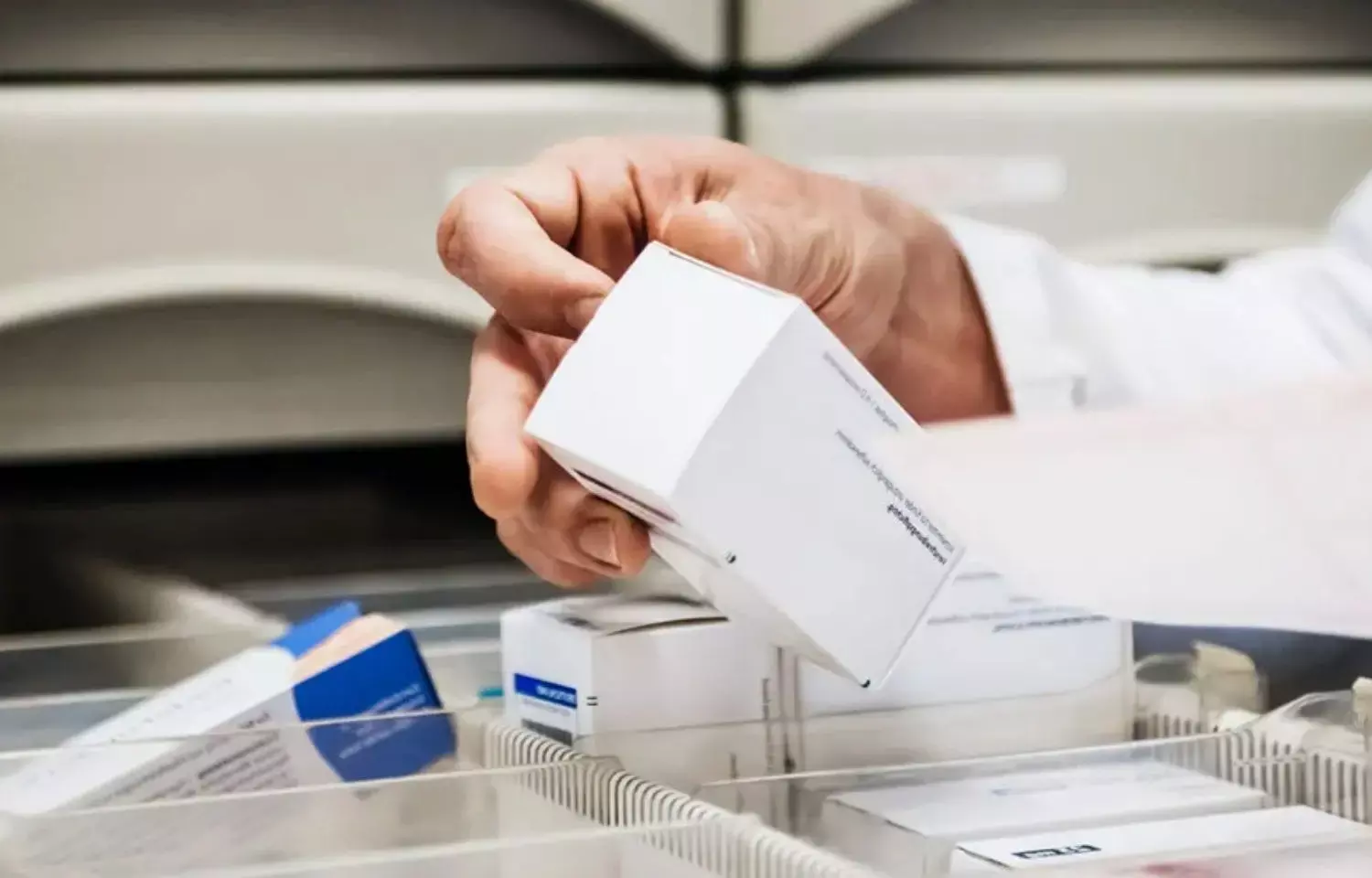- Home
- Medical news & Guidelines
- Anesthesiology
- Cardiology and CTVS
- Critical Care
- Dentistry
- Dermatology
- Diabetes and Endocrinology
- ENT
- Gastroenterology
- Medicine
- Nephrology
- Neurology
- Obstretics-Gynaecology
- Oncology
- Ophthalmology
- Orthopaedics
- Pediatrics-Neonatology
- Psychiatry
- Pulmonology
- Radiology
- Surgery
- Urology
- Laboratory Medicine
- Diet
- Nursing
- Paramedical
- Physiotherapy
- Health news
- Fact Check
- Bone Health Fact Check
- Brain Health Fact Check
- Cancer Related Fact Check
- Child Care Fact Check
- Dental and oral health fact check
- Diabetes and metabolic health fact check
- Diet and Nutrition Fact Check
- Eye and ENT Care Fact Check
- Fitness fact check
- Gut health fact check
- Heart health fact check
- Kidney health fact check
- Medical education fact check
- Men's health fact check
- Respiratory fact check
- Skin and hair care fact check
- Vaccine and Immunization fact check
- Women's health fact check
- AYUSH
- State News
- Andaman and Nicobar Islands
- Andhra Pradesh
- Arunachal Pradesh
- Assam
- Bihar
- Chandigarh
- Chattisgarh
- Dadra and Nagar Haveli
- Daman and Diu
- Delhi
- Goa
- Gujarat
- Haryana
- Himachal Pradesh
- Jammu & Kashmir
- Jharkhand
- Karnataka
- Kerala
- Ladakh
- Lakshadweep
- Madhya Pradesh
- Maharashtra
- Manipur
- Meghalaya
- Mizoram
- Nagaland
- Odisha
- Puducherry
- Punjab
- Rajasthan
- Sikkim
- Tamil Nadu
- Telangana
- Tripura
- Uttar Pradesh
- Uttrakhand
- West Bengal
- Medical Education
- Industry
Long-term control of psoriasis may require several courses of different agents in some cases: JAMA

Long-term control of psoriasis (PsO) and psoriatic arthritis (PsA) for some patients may require several courses of different agents, a recent study has suggested. The findings were published in the journal JAMA Dermatology on March 23, 2022.
The study found that for PsO and PsA, IL-17 inhibitors are associated with higher treatment persistence than the TNF inhibitor. Also, interleukin 17 inhibitors are associated with higher persistence than the IL-12/23 inhibitor for PsA, with no difference for PsO. However, for all biologics, the persistence rates remained globally low at 3 years.
There is a continuous evolution of the treatment options for PsO and PsA throughout the era of biologics. Clinical trials are inadequate for assessing the relative long-term efficacy of biologics and are often insufficient regarding safety. To fill this knowledge gap, Laura Pina Vegas, EpiDermE, Université Paris Est Créteil, Créteil, France, and colleagues aimed to assess the long-term persistence of different biologic classes to treat PsO and PsA in a nationwide cohort study.
The study involved the administrative health care database of the French health insurance scheme linked to the hospital discharge database. The study included all adults with PsO and PsA who were new users of biologics (not in the year before the index date) from January 1, 2015, to May 31, 2019. Those patients who were hospitalized for PsA in the PsO cohort and for PsO in the PsA cohort in the year before the index date were excluded. Data analysis was done from June 1 to October 31, 2021.
Persistence was defined as the time from biologic therapy initiation to discontinuation. It was estimated using the Kaplan-Meier method. The researchers then compared persistence by biologic class involved using propensity score–weighted Cox proportional hazards regression models.
The analysis included a total of 16 892 patients with PsO were included in the analysis (mean age, 48.5 years; 9152 men [54.2%] men).
The findings of the study were as follows:
- Of 16 892 patients with PsO included in the analysis, 60.4% started therapy with a tumor necrosis factor (TNF) inhibitor; 23.6%, with an interleukin 12 and interleukin 23 (IL-12/23) inhibitor; and 16.0%, with an interleukin 17 (IL-17) inhibitor.
- An additional 6531 patients with PsA (mean age, 49.1 years; 54.6% women) were included; of these, 76.2% started therapy with a TNF inhibitor; 12.3%, with an IL-12/23 inhibitor; and 11.5%, with an IL-17 inhibitor.
- Overall 3-year persistence rates were 40.9% and 36.2% for PsO and PsA, respectively. After inverse probability of treatment weighting and adjustment, the IL-17 inhibitor was associated with higher persistence compared with the TNF inhibitor for PsO (weighted hazard ratio [HR], 0.78) and PsA (weighted HR, 0.70) and compared with the IL-12/23 inhibitor for PsA (weighted HR, 0.69).
- No difference between the IL-17 inhibitor and IL-12/23 inhibitor for PsO was noted.
- The IL-12/23 inhibitor was associated with higher persistence than the TNF inhibitor for PsO (weighted HR, 0.76), with no difference observed for PsA.
To conclude, treatment persistence rates at 3 years for first-line biologic agents (TNF-α inhibitors, IL-12/23 inhibitors, and IL-17 inhibitors) was low, with IL-17 inhibitors exhibiting the highest persistence.
Reference:
Pina Vegas L, Penso L, Claudepierre P, Sbidian E. Long-term Persistence of First-line Biologics for Patients With Psoriasis and Psoriatic Arthritis in the French Health Insurance Database. JAMA Dermatol. Published online March 23, 2022. doi:10.1001/jamadermatol.2022.0364
Dr Kamal Kant Kohli-MBBS, DTCD- a chest specialist with more than 30 years of practice and a flair for writing clinical articles, Dr Kamal Kant Kohli joined Medical Dialogues as a Chief Editor of Medical News. Besides writing articles, as an editor, he proofreads and verifies all the medical content published on Medical Dialogues including those coming from journals, studies,medical conferences,guidelines etc. Email: drkohli@medicaldialogues.in. Contact no. 011-43720751


